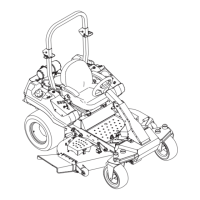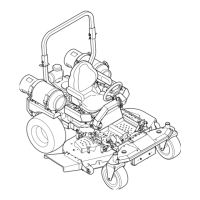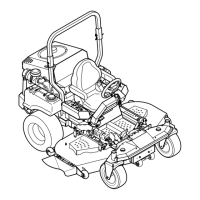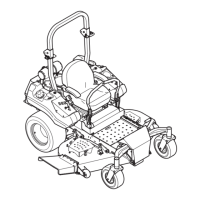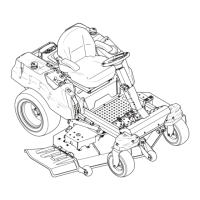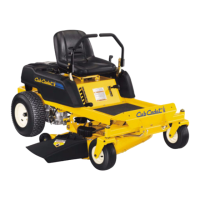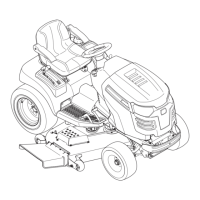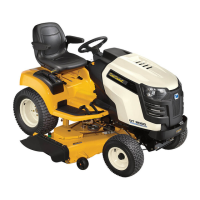Section 7— Service36
4. Use a 1-⁄” socket wrench on the pulley side of the spindle
bolt. See Fig. 7-7.
Flange Lock Nut
Blade
Hex Screw
Figure 7-7
5. Remove the hex nut at the blade using a 1-⁄” wrench and
remove the blade.
6. To replace the blade reverse the above process and tighten
nut to 100-120 lb ft.
NOTE: Add a small amount of multi-purpose grease to the
bolt threads to avoid corrosion and galvanic action.
WARNING! Never mow with dull blades. Blades that
are bent should be replaced. The cutting blades are
sharp and can cause severe injury. Wrap the cutting
surface of the blade with a rag to avoid injury.
Sharpening the Blades
1. Set the parking brake.
2. Clean any debris from the blades. Keep blades sharp and
free of build up at all times.
3. To properly sharpen the cutting blades, remove equal
amounts of metal from both ends of the blades along the
cutting edges, parallel to the trailing edge, at a 25°-30°
angle. Always grind each cutting blade edge equally to
maintain proper blade balance. See Fig. 7-8.
Figure 7-8
WARNING! If a blade is bent or otherwise
damaged, replace the blade with a new one. Use
only original equipment blades.
WARNING! A poorly balanced blade will cause
excessive vibration, may damage the machine and/
or result in personal injury.
4. Test the blade’s balance using a blade balancer. Grind
metal from the heavy side until it balances evenly.
NOTE: When replacing the blade, be sure to install the
blade with the side of the blade marked ‘‘Bottom’’ (or with
a part number stamped in it) facing the ground when the
mower is in the operating position.
WARNING! Use a torque wrench to tighten the
blade spindle hex flange nut to between 100 lbs-ft
and 120 lbs-ft.
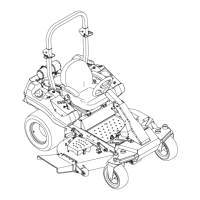
